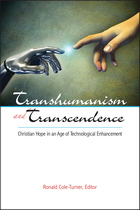
Research with human subjects has long been controversial because of the conflicts that often arise between promoting scientific knowledge and protecting the rights and welfare of subjects. Twenty-five years ago the National Commission for the Protection of Human Subjects of Biomedical and Behavioral Research addressed these conflicts. The result was the Belmont Report: Ethical Principles and Guidance for Research Involving Human Subjects, a report that identified foundational principles for ethical research with human subjects: respect for persons, beneficence, and justice.
Since the publication of Belmont, these three principles have greatly influenced discussions of research with human subjects. While they are often regarded as the single-most influential set of guidelines for biomedical research and practice in the United States (and other parts of the world), not everyone agrees that they provide adequate guidance. Belmont Revisited brings together a stellar group of scholars in bioethics to revisit the findings of that original report. Their responses constitute a broad overview of the development of the Belmont Report and the extent of its influence, especially on governmental commissions, as well as an assessment of its virtues and shortcomings.
Belmont Revisited looks back to reexamine the creation and influence of the Belmont Report, and also looks forward to the future of research—with a strong call to rethink how institutions and investigators can conduct research more ethically.

The timeless human desire to be more beautiful, intelligent, healthy, athletic, or young has given rise in our time to technologies of human enhancement. Athletes use drugs to increase their strength or stamina; cosmetic surgery is widely used to improve physical appearance; millions of men take drugs like Viagra to enhance sexual performance. And today researchers are exploring technologies such as cell regeneration and implantable devices that interact directly with the brain. Some condemn these developments as a new kind of cheating—not just in sports but in life itself—promising rewards without effort and depriving us most of all of what it means to be authentic human beings. “Transhumanists,” on the other hand, reject what they see as a rationalizing of human limits, as if being human means being content forever with underachieving bodies and brains. To be human, they insist, is to be restless with possibilities, always eager to transcend biological limits.
As the debate grows in urgency, how should theology respond? Christian theologians recognize truth on both sides of the argument, pointing out how the yearnings of the transhumanists—if not their technological methods—find deep affinities in Christian belief. In this volume, Ronald Cole-Turner has joined seasoned scholars and younger, emerging voices together to bring fresh insight into the technologies that are already reshaping the future of Christian life and hope.
READERS
Browse our collection.
PUBLISHERS
See BiblioVault's publisher services.
STUDENT SERVICES
Files for college accessibility offices.
UChicago Accessibility Resources
home | accessibility | search | about | contact us
BiblioVault ® 2001 - 2024
The University of Chicago Press









